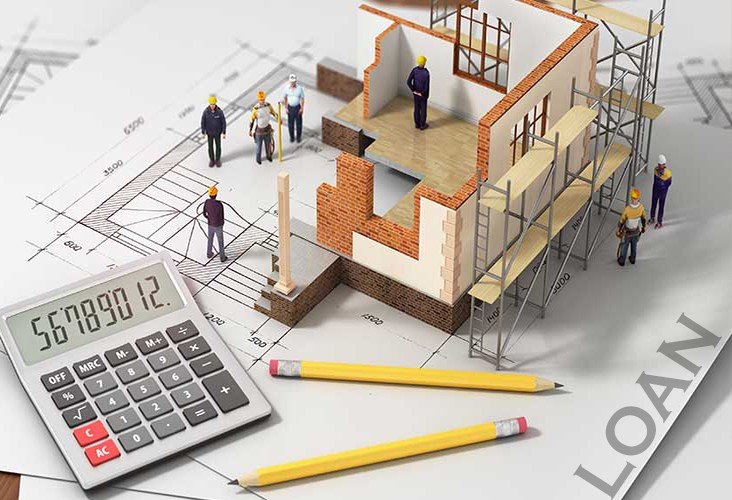Renovating a home in Virginia—whether it’s updating an older house, adding space, or improving energy efficiency—can be an exciting step, but it’s also expensive. If you don’t have the funds to pay for renovations upfront, a construction loan for renovations might be the solution.
In this guide, we’ll explore what construction loans are, how they work specifically for home renovations, the types of loans available, requirements in Virginia, and how to get started.
What Is a Construction Loan for Renovations?
A construction loan for renovations is a type of short-term loan that helps homeowners or buyers pay for major remodeling or improvements. Unlike a traditional mortgage that gives you a lump sum at closing, a renovation construction loan releases money in phases as renovation work is completed.
These loans are ideal for:
- Major remodeling (kitchen, bathroom, basement, etc.)
- Structural changes (additions, roofing, foundation work)
- Making an older or uninhabitable property livable
- Fixer-upper home purchases
Types of Renovation Construction Loans in Virginia
1. FHA 203(k) Loan
Backed by the Federal Housing Administration, this loan lets homebuyers or owners finance both the purchase (or refinance) of a home and renovation costs into a single mortgage.
- Minimum 3.5% down payment
- Available to buyers with lower credit scores
- Limited and Standard 203(k) options (for light or major renovations)
2. Fannie Mae HomeStyle Renovation Loan
This conventional loan allows homeowners to borrow based on the after-renovation value of their home.
- Good credit and 3–5% down payment usually required
- Can be used for luxury upgrades (e.g., pools, home theaters)
- Can combine with purchase or refinancing
3. VA Renovation Loans
For eligible veterans or active-duty military members. Allows combining home purchase/refinance with renovation funds.
- Backed by the VA
- Requires VA-approved contractors
- More limited in scope than other renovation loans
4. Construction-to-Permanent Loan
Often used for new construction but also available for major renovations. The loan covers the renovation, then converts to a permanent mortgage once the work is done.
- Ideal for large-scale remodels
- Only one closing
- Higher credit and income standards
How Do Renovation Construction Loans Work in Virginia?
Here’s how the process typically goes:
Step 1: Plan the Renovation
Before applying, you need:
- A clear scope of work
- Cost estimates from licensed Virginia contractors
- Architectural plans or drawings (for larger projects)
Step 2: Choose the Right Loan & Lender
Work with a lender familiar with renovation loans in Virginia. Compare options like FHA 203(k), HomeStyle, or local bank construction loans. Your lender will help you choose the best product based on your goals and qualifications.
Step 3: Get Pre-Approved
The lender will evaluate:
- Your credit score and history
- Debt-to-income ratio (DTI)
- Income documentation
- Appraisal of the home’s projected value after renovations
Step 4: Appraisal Based on Future Value
The lender orders an appraisal based on what the home will be worth after the renovations are complete. This “after-repair value” (ARV) determines how much you can borrow.
Step 5: Loan Closing and Escrow
Once approved, you’ll sign loan documents. The loan funds are held in an escrow account, and are released in draws to the contractor as work is completed.
Construction Loan Draw Process
Construction loans are disbursed in phases, not all at once.
- Initial Draw – After permits are pulled and work begins
- Progress Draws – After each major phase (e.g., foundation, framing, plumbing)
- Final Draw – After project completion and inspection
Before each draw, the lender may send an inspector to verify that the work is done correctly and meets Virginia’s local building codes.
Loan Repayment Terms
- During construction, most loans require interest-only payments on the amount drawn so far.
- Once the project is complete, the loan converts to a permanent mortgage, or you refinance it into a traditional loan.
Common Renovation Projects Covered
Renovation construction loans typically cover:
- Kitchen and bathroom remodeling
- New roof or HVAC systems
- Room additions or garage conversions
- Plumbing and electrical upgrades
- Energy-efficiency improvements
- Cosmetic updates (flooring, cabinets, paint)
- Decks, patios, landscaping (in some loan types)
What Are the Requirements in Virginia?
Here’s what lenders generally expect:
- Credit score: Typically 620+ for conventional, lower for FHA 203(k)
- Down payment: 3–20% depending on the loan type
- Licensed contractors: Required in Virginia for permitted renovations
- Permits: Must be filed and approved with your local jurisdiction (e.g., Fairfax County, Virginia Beach, Richmond)
- Insurance: You may need builder’s risk insurance during construction
Advantages of Renovation Construction Loans
✔ One Loan: Finance both the renovation and the home purchase/refinance together
✔ Higher Borrowing Power: Based on after-renovation value
✔ Customization: Tailor your home to your needs
✔ Build Equity Faster: Renovations can increase property value significantly
Challenges to Watch For
✘ Paperwork: These loans require detailed documentation and contractor bids
✘ Inspections and Delays: Draws depend on inspection approvals
✘ Limits on DIY Work: Most lenders require professional contractors
✘ Strict Guidelines: Especially with government-backed loans like FHA 203(k)
Tips for Virginia Homeowners
- Work with local contractors who understand Virginia zoning and permit laws
- Stay organized: Keep records of bids, contracts, and receipts
- Understand your city or county’s inspection process
- Ask your lender about contingency funds—for unexpected overruns
- Make sure your contractor is licensed, bonded, and insured
Final Thoughts
A renovation construction loan is a powerful tool for homeowners and buyers looking to breathe new life into a property in Virginia. Whether you’re restoring a classic colonial in Richmond or modernizing a beach home in Virginia Beach, these loans can help fund your vision.
Just be prepared: while the process is more involved than a standard mortgage, the long-term value—financially and personally—can be well worth it.
FAQ: How Do Construction Loans Work for Renovations in Virginia?
1. What is a renovation construction loan?
A renovation construction loan is a short-term loan that provides funding for major home improvement or remodeling projects. In Virginia, these loans are commonly used to renovate older homes, add space, or modernize a property. The funds are typically disbursed in phases as the renovation progresses.
2. How is a renovation loan different from a traditional home loan?
Unlike a traditional mortgage (where you receive the full amount upfront), a renovation loan releases funds in stages (called draws) based on construction progress. Payments are often interest-only during the renovation period.
3. What types of renovation loans are available in Virginia?
Common options include:
- FHA 203(k) Loan: Government-backed loan for low-to-moderate income borrowers.
- Fannie Mae HomeStyle Loan: Conventional loan based on future home value.
- VA Renovation Loan: For eligible veterans/military members.
- Construction-to-Permanent Loan: Converts to a standard mortgage after construction is completed.
4. Who can qualify for a renovation loan?
You’ll typically need:
- A good credit score (usually 620+ for conventional loans)
- Proof of stable income
- A low debt-to-income (DTI) ratio
- Licensed contractors and detailed renovation plans
- Appraisal based on after-renovation value
5. How much can I borrow with a renovation loan?
It depends on:
- The after-renovation value of your home
- Your income and credit profile
- The total cost of the proposed renovations
Lenders will often allow you to borrow up to 110% of the projected home value after improvements.
6. What can I use a renovation loan for?
You can fund projects such as:
- Kitchen and bathroom remodels
- Roof replacement, HVAC upgrades
- Room additions or finishing a basement
- Accessibility modifications
- Cosmetic upgrades and landscaping (with some loan types)
7. How are funds disbursed during the project?
Funds are held in an escrow account and released in installments (called draws) as work is completed. A lender-appointed inspector usually verifies each phase of work before releasing the next draw.
8. Do I have to hire a licensed contractor?
Yes. Most lenders in Virginia require you to use licensed, insured contractors. DIY renovations are generally not permitted under construction loans.
9. What is the interest rate on a renovation construction loan?
Interest rates vary by lender and loan type. They may be slightly higher than standard mortgages during the construction phase but can convert to a fixed-rate once the renovation is complete (in the case of construction-to-permanent loans).
10. Can I buy a fixer-upper with a renovation loan?
Yes. Many people use renovation loans (like the FHA 203(k) or HomeStyle) to purchase a home in poor condition and finance the repairs as part of the mortgage.
11. Is a home appraisal required?
Yes. The lender will order an “as-completed” appraisal, which estimates your home’s future value after the proposed renovations are done.
12. What happens after the renovations are finished?
- If using a construction-to-permanent loan, the loan converts to a standard mortgage.
- If using a separate construction loan, you may need to refinance into a permanent mortgage.
- The contractor’s final payment is made, and any remaining escrow balance is resolved.
13. Are renovation loans available for investment or rental properties?
Yes, some renovation loans (like the Fannie Mae HomeStyle) can be used for investment or second homes, though the requirements are stricter, and down payments are typically higher.
14. How long does the renovation loan process take?
From application to funding, expect 30–60 days depending on project complexity, contractor readiness, and lender speed.
15. Do I need building permits in Virginia for renovations?
Yes. For most structural or major system renovations, you’ll need to obtain building permits from your local Virginia jurisdiction (county or city). Permits are often required before lenders release construction funds.
Read More:










